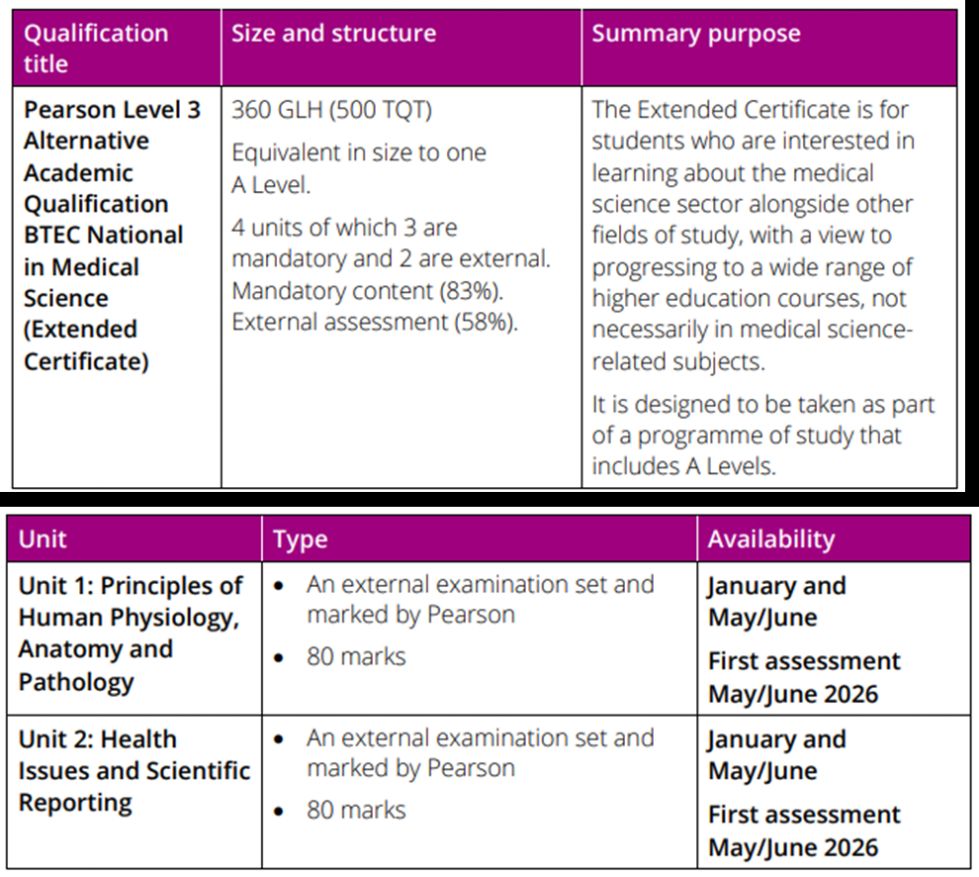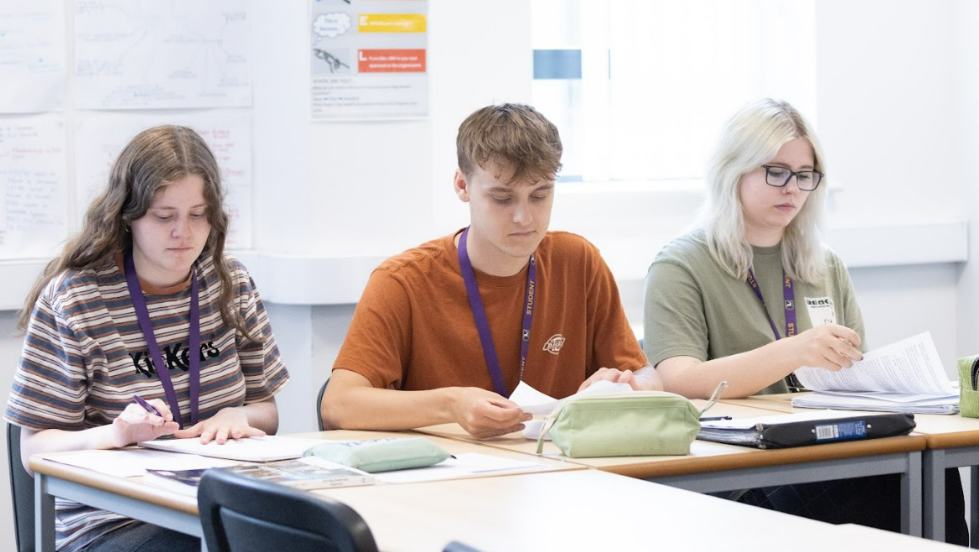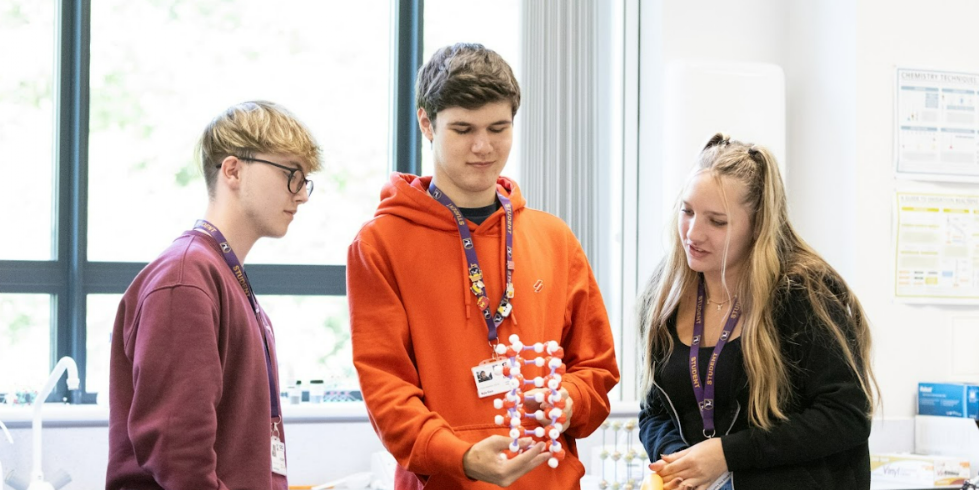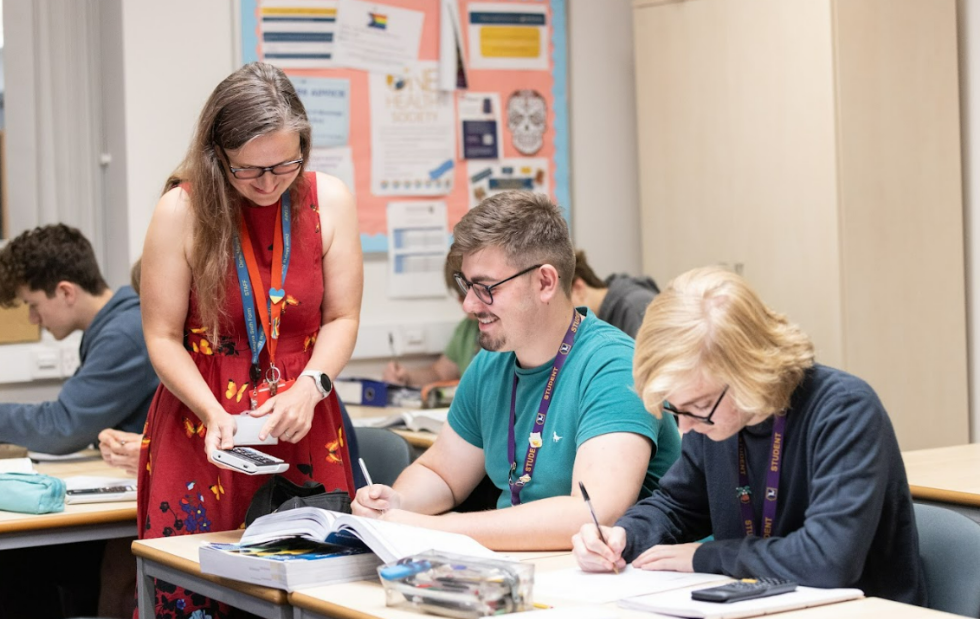Medical Biology
Head of Department: Mrs A Clark
Syllabus Title: Level 3 Alternative Academic Qualification BTEC National in Medical Science
(Extended Certificate)
Exam Board: Pearson (TBC)
Length of Course: 2 years
Entry Requirements: GCSE Grade 5+ in Maths and at least 5-5 in Science
Description
The Pearson Level 3 Alternative Academic Qualification BTEC National in Medical Science (Extended Certificate) enables students to study the principles and applications of medical science through three mandatory units, and further explore other areas in more detail via an optional unit. Students will also learn practical and investigation skills that build on this fundamental knowledge.
The qualification is designed to be taken alongside A Levels as part of a study programme and can link to learning in A Level subjects such as physical education and sport, sociology, chemistry and psychology. It is intended for students that wish to progress into higher education as a pathway to employment.
The course is composed of externally assessed exams and coursework (NEA).
Topics studied on this course:
The qualification has been developed in consultation with higher education representatives and sector experts from associated professional bodies to ensure students have the knowledge, understanding and skills they need to progress to, and thrive, in higher education.
The qualification has three mandatory units covering the following topics:
- Human Physiology, Anatomy and Pathology − Human body systems, cell ultrastructure, and how substances are transported
- Health Issues and Scientific Reporting − The immune system, its dysfunction and genetic technologies. The validity and reliability of information used in health science reporting
- Practical Microbiology and Infectious Diseases − Methods of pathogenicity and infectious agents, growth of microorganisms and health and safety in a laboratory environment.
Students have a choice of three optional units covering the following topics:
- Diseases, Disorders, Treatments and Therapies − Principles of physiological diseases and disorders and their associated drug and medicine development
- Biomedical Science − Biomedical science techniques and their clinical application
- Human Reproduction and Fertility − Reproductive science including causes of infertility and associated impacts on health and well-being.
Students will develop the following knowledge and skills from the mandatory units:
- Knowledge and understanding of human physiology, anatomy and pathology
- Secondary research skills including collection and interpretation of data from valid sources and drawing reasoned conclusions
- Practical skills in microbiology and their application in the diagnosis of disease
- Critical thinking.
Students will develop the following knowledge from the optional units:
- Knowledge and understanding of specialist areas relating to infectious disease transmission, biomedical science and human reproduction and fertility.
Students can also develop other transferable skills such as personal responsibility and independent learning. The core and specialist medical science knowledge, understanding and skills that students develop create a good foundation for transition to related degrees. Skills such as critical thinking and independent learning help students to be better prepared for the self-directed learning approach used in higher education and become more open minded to learning. Research skills, in combination with the other transferable skills, create a strong foundation for academic success.
Coursework and assessment

Post A Level
This qualification can lead to progression to the following degrees:
- BSc (Hons) Nursing (Adult Health/Child Health/Mental Health)
- BSc (Hons) Psychology
- BSc (Hons) Physiotherapy.






